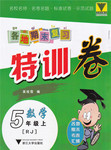题目内容
I feel uncomfortable each time I remember the situation _____ Mary didn’t agree with me _______ the matter.
A. that; at B. where; over
C. which ; about D. where; to
练习册系列答案
 中考解读考点精练系列答案
中考解读考点精练系列答案 各地期末复习特训卷系列答案
各地期末复习特训卷系列答案 小博士期末闯关100分系列答案
小博士期末闯关100分系列答案
相关题目
题目内容
I feel uncomfortable each time I remember the situation _____ Mary didn’t agree with me _______ the matter.
A. that; at B. where; over
C. which ; about D. where; to
 中考解读考点精练系列答案
中考解读考点精练系列答案 各地期末复习特训卷系列答案
各地期末复习特训卷系列答案 小博士期末闯关100分系列答案
小博士期末闯关100分系列答案